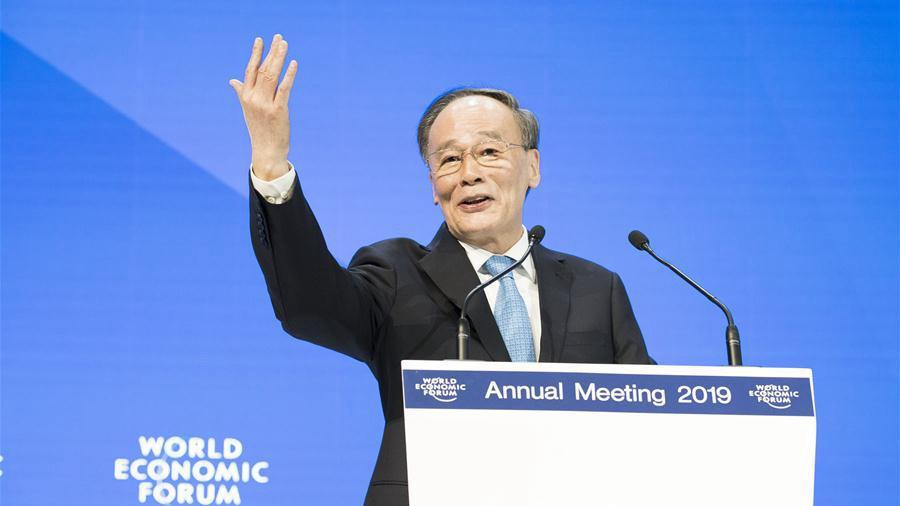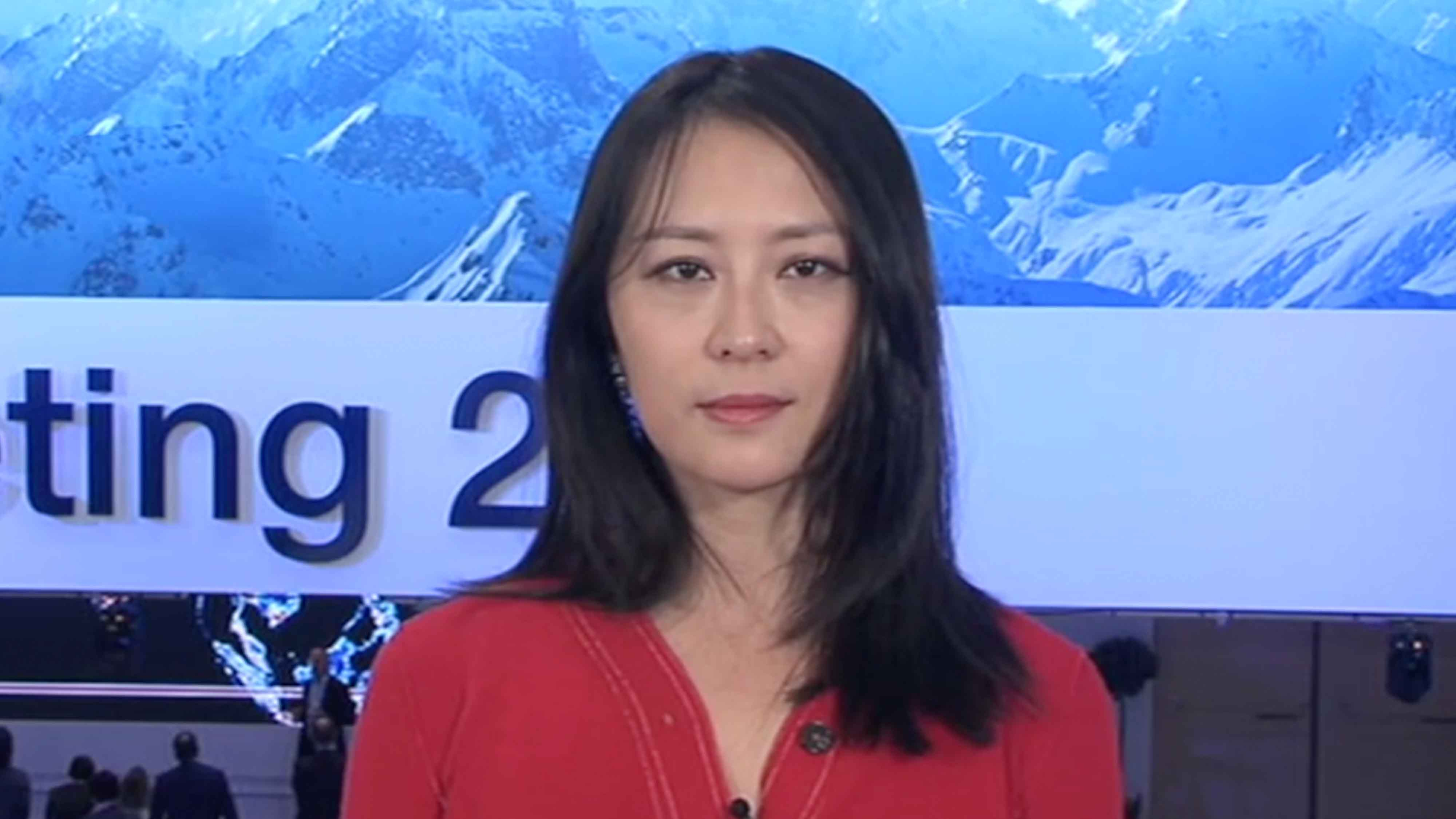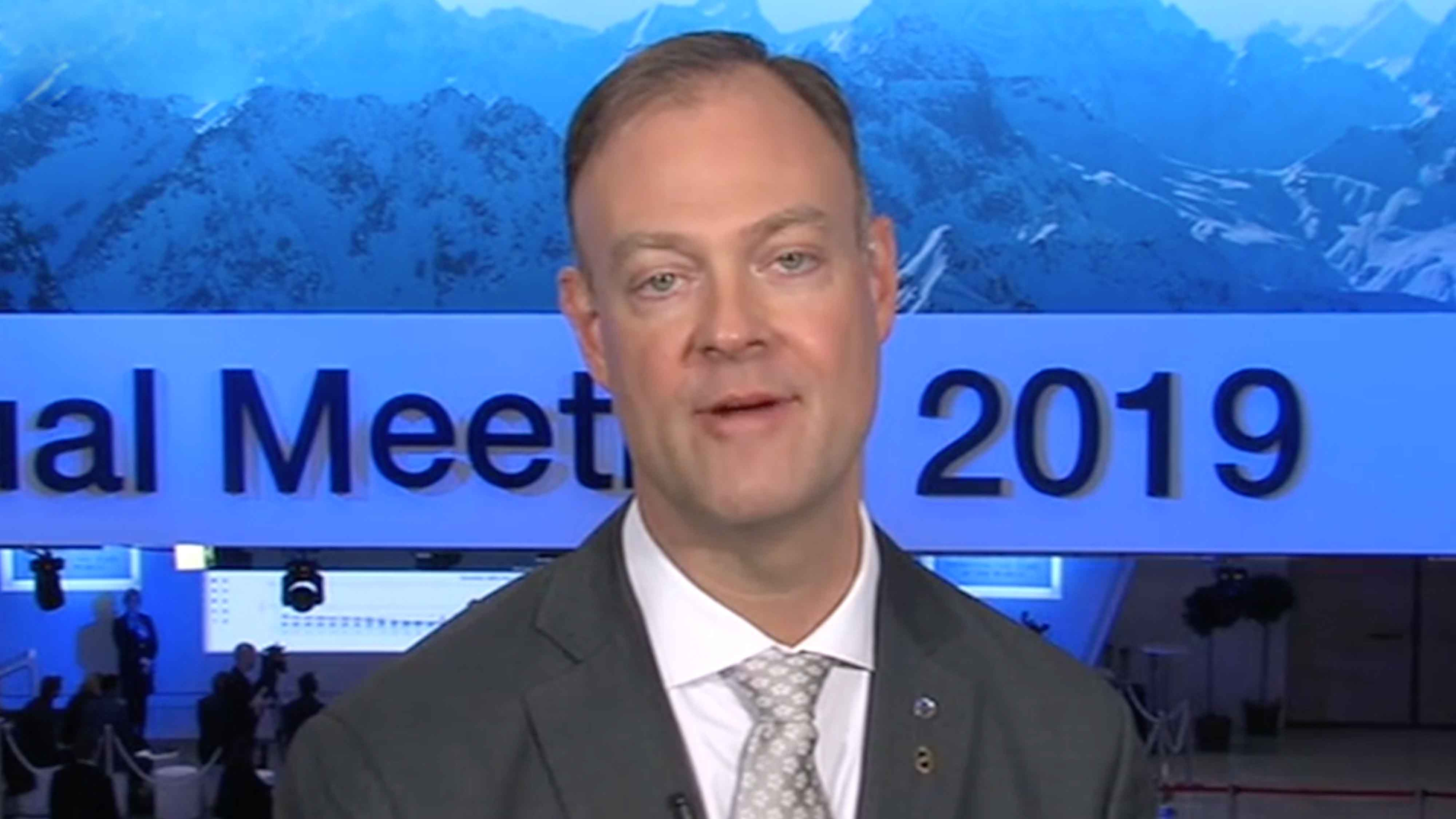
TV Show
10:58, 27-Jan-2019
China embraces 'Globalization 4.0' at Davos
Updated
11:47, 27-Jan-2019
Dialogue with Yang Rui
02:09

From January 22 to 25, the Alpine town of Davos in Switzerland has attracted a wide range of global business leaders and politicians for its annual World Economic Forum (WEF), with the theme of “Globalization 4.0: Shaping a Global Architecture in the Age of the Fourth Industrial Revolution”.
At the gathering, Chinese Vice President Wang Qishan delivered a speech in which he called for cooperation instead of confrontation and expressed his support for creating a global architecture for the era of the Fourth Industrial Revolution.
Liu Zhiqin, a senior fellow at the Chongyang Institute for Financial Studies of Renmin University of China, believes “the Fourth Industrial Revolution” is still a “new topic” for the whole world.
“We discussed it since last year, but we have only tensions between developing countries and developed countries… At the moment, the pressing issue for the world is to discuss the trade tensions.” He also approved China's performances in technology development.
Professor Jin Keyu from the London School of Economics shared her insights on “Globalization 4.0.” “Technology is the solution to many of today's pressing problems, but what we lack in the world is the political leadership and coordination, which is equally important,” she said, adding that “globalization is facing a crisis” in today's world.
03:56

“With the trade disputes still ongoing, one has to realize that there are many synergies between these economies in exchanging goods and ideas. When next ‘Globalization 4.0' really arrives, then we have to be embracing for greater tensions that come along down the line.”
She also proposed the concept of “good trade.” “China's goal is to uphold globalization, and uphold the multilateral system… So China will make some concessions to the U.S. on trade,” which Jin believes will be “good for China in the long run.”
Recently, the IMF cut its forecast for global growth from 3.7 percent in 2018 to 3.5 percent in 2019, with increasing concerns over trade tensions. In the meantime, China released its official economic growth figure – 6.6 percent in 2018, the lowest since 1990 – earlier this week.
Despite the above, Vice President Wang Qishan struck a very optimistic tone when discussing China's economy with Klaus Schwab, founder and executive chairman of the WEF. Wang stressed that China would definitely beat expectations on its mission to achieve a moderately prosperous society in all respects by the end of 2020, while maintaining sustainable growth.
01:14

David S. Aikman, a chief representative of the World Economic Forum's China office, believed 6.6 percent growth is “healthy.”
“The growth is coming from the transformation of the Chinese economy. There's still so much potential in the market, in terms of the rising of middle-class consumers,” Aikman said, citing the success of e-commerce as an example.
But he warned that rising income inequality is something that “should worry the policymakers.” He added, “I think the Chinese government is conscious about that and also worked very hard to make sure that the incredible growth is both inclusive and sustainable.”.
Liu Zhiqin is also optimistic about China's economy for two reasons: China's policy reserve and market potential. He believed that China has unlimited market potential during the past 40 years, and the efficiency of the government can guarantee that they make the right decisions at the right time.
(If you want to contribute and have specific expertise, please contact us at opinions@cgtn.com)

SITEMAP
Copyright © 2018 CGTN. Beijing ICP prepared NO.16065310-3
Copyright © 2018 CGTN. Beijing ICP prepared NO.16065310-3